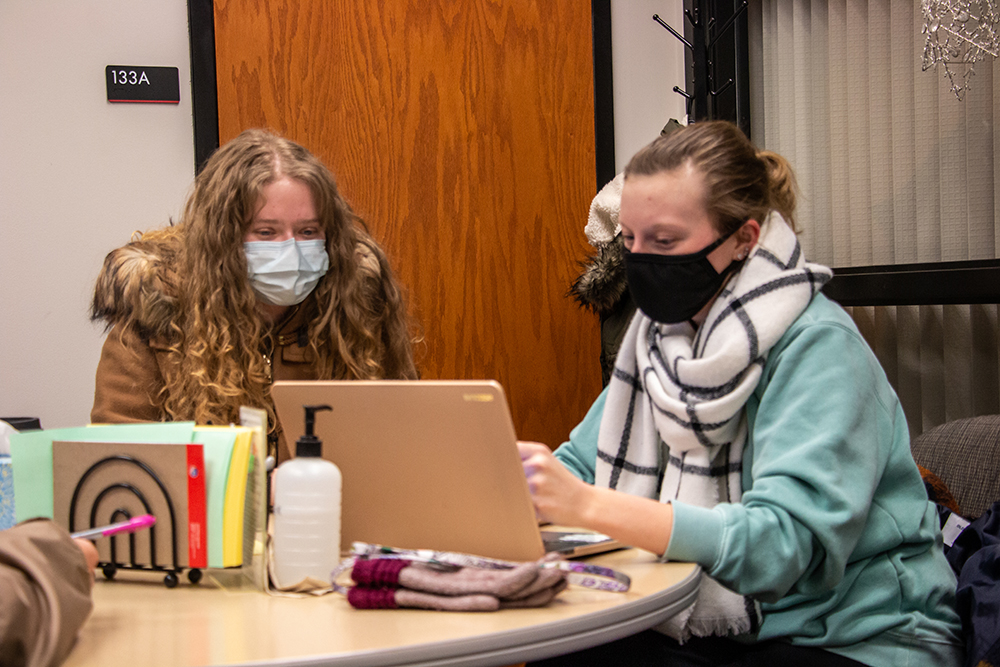
Writing Center spring hours include expanded Zoom sessions
Over the past year, USD’s Writing Center has adapted to the COVID-19 by increasing opportunities for students to receive assistance virtually while maintaining in-person meetings.
Emily Kluin, a writing consultant at the Writing Center, said the center helps students with all stages of writing, from citation styles to formulating a rough draft to offering guidance on revisions. The center also helps with theses and dissertations, as well as with application material and language conversational services for ESL students.
Kluin said some students have been experiencing more difficulty with classwork due to the increase in remote learning over the past year, and the Writing Center has worked to make sure students can receive help remotely. This includes uploading writing to a dropbox to receive feedback as well as offering Zoom hours.
“We’ve been trying to adapt to make sure that no matter where writers are, they’re able to still access some of our services,” Kluin said. “We’ve been trying to be flexible with the ways that we allow students to access writing, but I do think, with the whole COVID scenario, it definitely is difficult.”
Michelle Rogge-Gannon, the director of the Writing Center, said while the dropbox isn’t new, more students have been using it than in previous semesters.
“Honestly, I think it’s better to do the face-to-face if they can, or they can also do Zoom sessions,” Rogge-Gannon said.
Rogge-Gannon, who is also a professor at USD, said she has noticed students experience more difficulty in remote learning, and even in face-to-face classes with masks and social distancing.
“It’s more difficult to, you know, commit to an online class or to online learning, I guess, then when you’re on campus,” Rogge-Gannon said.
Additionally, COVID-19 restrictions have limited what the Writing Center has been able to offer besides help with writing. Rogge-Gannon said the center had to shut down its beverage center.
“Normally, students could come in and get a cup of coffee or tea, or hot chocolate,” Rogge-Gannon said. “Which is one of the ways that we use to kind of make it a more friendly, you know, atmosphere.”
The center has also used more cleaning supplies and hand sanitizers, and provides face masks if a student needs a new one.
Kluin said some difficulties with the Writing Center have been miscommunications about its purpose. Students sometimes expect consultants to proofread papers instead of teaching students the skills to proofread their own papers.
“A lot of times, writers will come in, and they’ll be like, ‘oh, here’s my paper, can you mark it up with, like a red pen and show me all the areas that I need to fix?’” Kluin said. “And we’re not allowed to do that.”
Kluin said working at the Writing Center has been a rewarding experience.
“I really enjoy getting to talk with all the writers that come in and discuss their writing and help improve upon areas that they want,” Kluin said.
Rogge-Gannon encouraged all students, even students who consider themselves good writers, to take advantage of the Writing Center.
“A lot of students don’t and they should. And it’s really an advantage,” Rogge-Gannon said.
To get help from the Writing Center, students can visit the physical location in the library and meet with available consultants or make an appointment through Coyote Connections, as well as by uploading writing to the dropbox.


